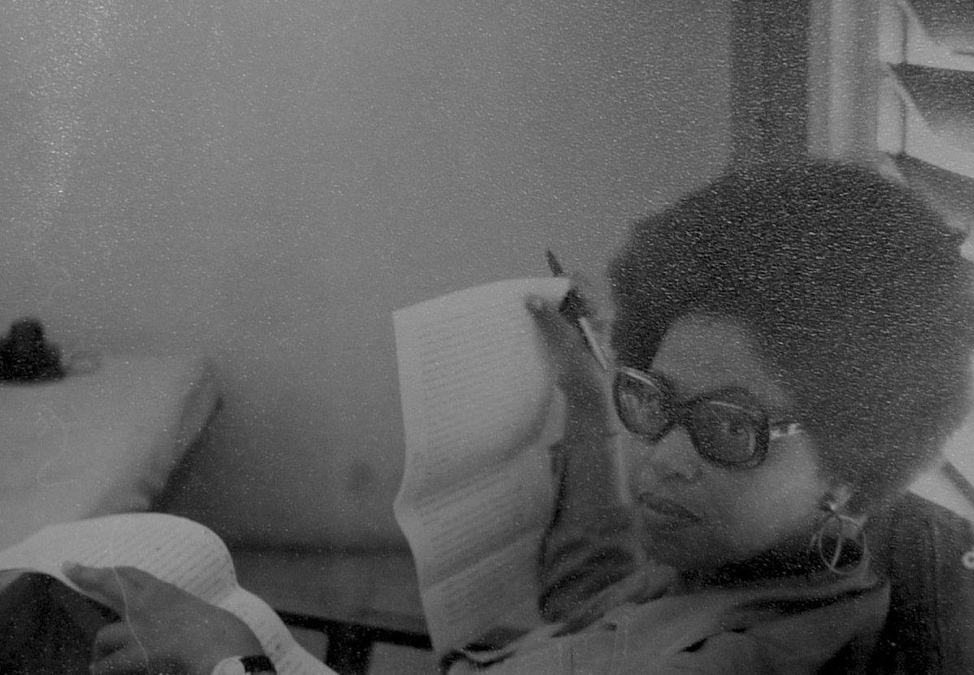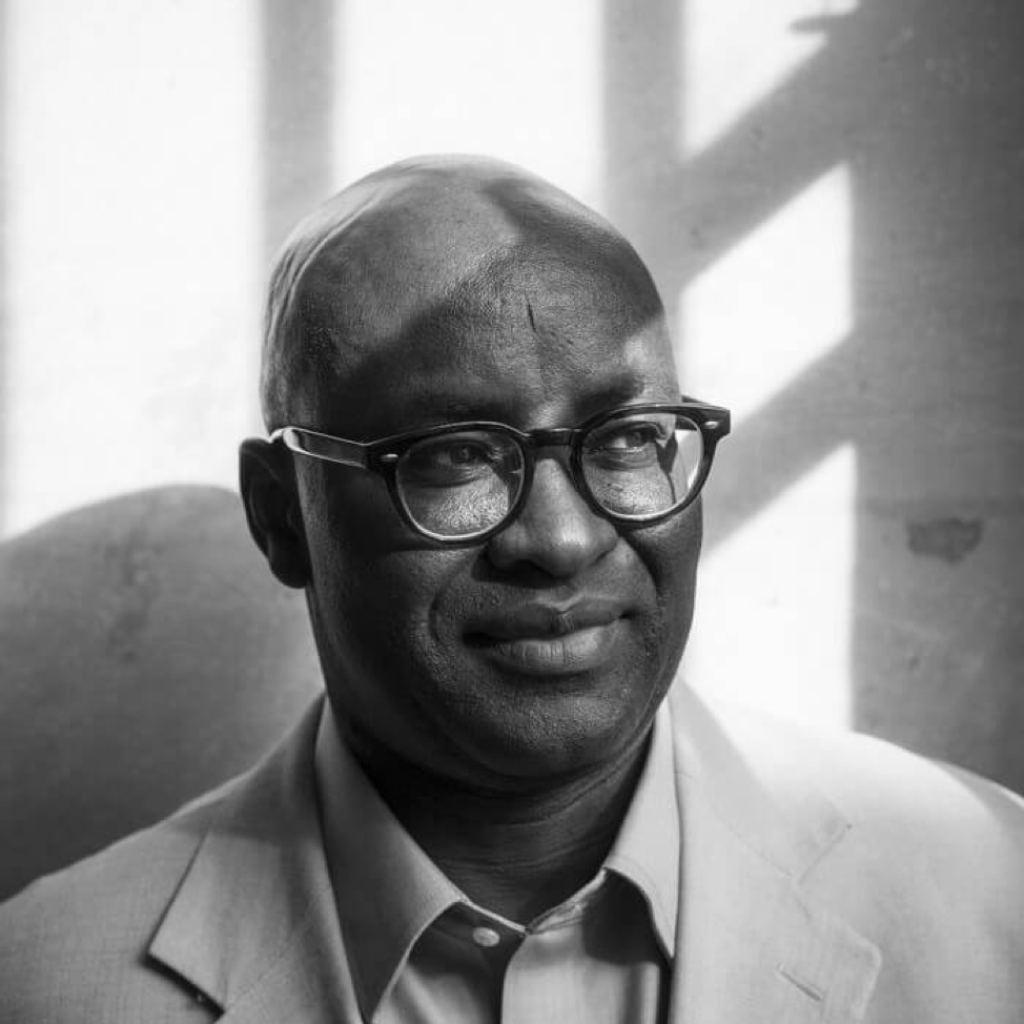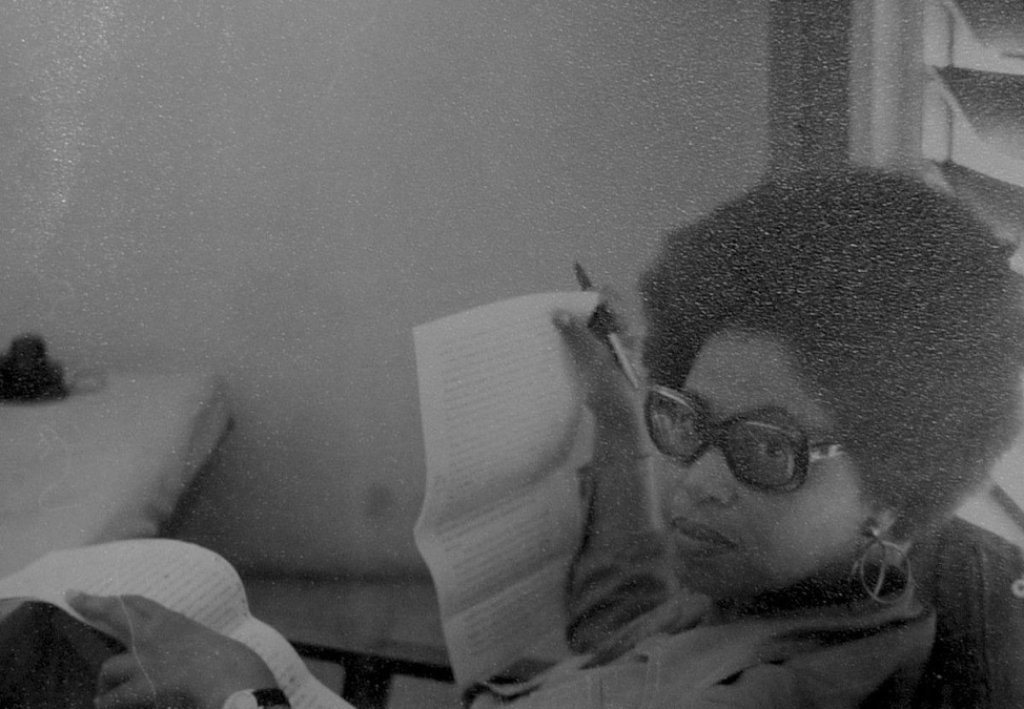
Among Muslims of African-descent in the United States, there is a rather extensive history of their participation in the Black Freedom Struggle. From resistance to the forced migration and enslavement of African Muslims starting before the founding of the USA, to the proliferation of faith-based political organizations, to the establishment of private educational centers, Muslims who are Black (i.e. African-American, African, Caribbean, etc.) have had to confront what Achille Mbembe calls “Black Reason”—the prevailing structures of thought out of which arises anti-Black racism and its resultant violences.[i] In addition, they have had to combat an ever-present reality of Islamophobia that results in the invisibility of Black Muslim suffering and in a constant challenge of undoing misconceptions that contribute to rhetorical and physical harm against Muslims more generally. Black Muslim Reason, thus, is a manner of describing the twofold reproach of Black Muslims in particular. Moreover, this term describes the way in which Black Muslims have had to confront anti-Black racism from within Muslim communities, as many have reported multiple instances of discrimination or racism in Muslim spaces and amongst some Muslim scholars. For many, it is clear that Black Muslim Reason is a unique site against which people have struggled for their own human dignity too long.

Using CRT to Study the Black Muslim Experience
This past semester, I taught a course entitled “Critiquing Black Muslim Reason in the United States” in the Department of African & African-American Studies at Harvard University. The course was originally framed the previous year as “Black Muslims: Race, Religion and Culture in the United States.” However, I decided to make this subtle change in title to further highlight the inherent politics through which Muslims of African descent have contributed to the building of religious institutions, movements, and organizations which they relied upon to articulate their varying ideological positions, and to provide educational and economic assistance as well as religious training amongst and within their communities. I took note that to teach a course on Black Muslims without giving proper accounting for the kinds of emergent Black identities that are present within the United States (for example, Somali-American Muslims) would render any discussion of the contemporary politics of being simultaneously Black and Muslim hollow. Yes, the narrative and experiences of African-American Muslims are surely rich in their own right. However, as a scholar who has a vested interest in studying how religion serves as a medium for the configuring of African Diasporic politics in multiple contexts, I needed to think more carefully about how I examined the terrain that Black Muslims have historically and presently navigated. As well, I felt a need to stress to my students that the fundamental takeaways from learning about the Black Muslim historical and political experience in the United States is more than a mere unfolding of events.
Therefore, my seminar was an interdisciplinary examination of Black Muslim politics, histories, movements, and thought in the United States whereby we unpacked the establishment of Black Muslim communities, simultaneous politics of race and religion, exegetical fissures, and questions of gender, citizenship and marginalization among others. We took a diasporic approach to our study of Black Muslimness by thinking with and beyond the African-American Muslim narrative by including how Black African and Caribbean Muslims have also navigated life in the United States. Course topics included the continuities and contours of Black Muslimness, migration & belonging, Atlantic struggles and the Slave Trade, Black Religious Orthodoxies & Reversion Narratives, Race and Gender Politics, the complexities of Somali-American Muslimness, Islam and Hip-Hop, and Intra-religious difference. In order to do this successfully, we made thorough use of Critical Race Theory in order to properly understand how race structures the Black Muslim experience.
“As I have been known to state quite explicitly during public lectures and during class: Black Muslims have always been Black. That is, there is no point at which Muslims in the United States who identify, or can be identified, as ‘Black’ are freed from the constraints, stereotypes, symbolic and structural violence, and genocide that being Black in the world actually brings.”
As I have been known to state quite explicitly during public lectures and during class: Black Muslims have always been Black. That is, there is no point at which Muslims in the United States who identify, or can be identified, as ‘Black’ are freed from the constraints, stereotypes, symbolic and structural violence, and genocide that being Black in the world actually brings. This ontological terror that ‘experiencing Blackness’ produces has also expanded in light of state violence and emergent ethnonationalisms. It is not simply a matter of identifying explicit racisms that will help us better understand (and combat) how anti-Blackness shapes problematic social relations and the discourses that drive them. “Black Reason,” as Achille Mbembe calls it, is a quite succinct way of describing how violent and enduring forms of racial domination emanate from both racist discourses and racist practices—how they are produced structurally and discursively. Not only must Black Muslims navigate anti-Black discourses and practices; they also contend with anti-Muslim discourses and practices (Islamophobia) like other Muslims do. Yet, such imbricating forms of marginalization should not merely be understood as configurations of violence that operate individually. An intersectional analysis (see Kimberlé Crenshaw) should push us to consider how anti-Blackness and anti-Muslimness work simultaneously to produce a unique form of marginalization for Muslims who are Black. Thus, if Black Reason “consists of a collection of voices, pronouncements, discourses, forms of knowledge, commentary, and non-sense, whose object is things or people ‘of African origin’ that [codifies] the conditions for the appearance and the manifestation of a racial subject that would be called the Black Man”[ii], then my aim was to guide my students in considering the ways in which Black Muslims must navigate a phenomenon that Imam Talib Abdur-Rashid has called a “double Blackness”—the marginality felt through both discourses of anti-Blackness and Islamophobia.[iii] Hence, I use the term ‘Black Muslim Reason’ to refer to the manner in which, for example, the kinds of polemics we saw unfolding on social media platforms amongst Muslims seemed to reveal subtle and not-so-subtle forms of anti-Black Muslimness amongst some religious scholars and their supporters.
Serious and thoughtful engagement with Critical Race Theory potentially helps in us garnering a better understanding of how racist thought, and other forms of colonial domination, structures how we see others and ourselves, and embeds itself into the very core of our being. One cannot properly address how these detrimental resonances inhabit the nafs without locating, historically and presently, how they divorce one from a God-centered conception of the human (not one configured by race, for example). Hence, Black Muslim Reason is part of a broader desecration of the human. Furthermore, if we are to take seriously the Prophetic mandate to seek knowledge wherever one may find it, how can we ignore the scholarship of W.E.B. Dubois, James Baldwin, Toni Morrison, Sylvia Wynter, Saidiya Hartman, Calvin Warren, Fred Moten, Frantz Fanon, Tiffany King and others when their interventions specifically address possibly the most enduring fundamental issue that inhibits human dignity? Racist thought does not only produce suffering for Black people—it also explains why this country is imprisoning undocumented children, for example.

But, on the other hand, even an in-depth study of Critical Race Theory does not replace the real work of actually ‘being human’ and recognizing the humanity in others, just as being Muslim does not erase Whiteness. Learning to see the world through the eyes of the suffering requires work and humility.
Discussing CRT on Muslim Twitter
Somewhat recently, many witnessed an argument brewing on various social media platforms between Muslim academics and activists, and a collection of some classically-trained Muslim scholars and their supporters. While the academics and activists found the right-winged conservatism and colorblindness—the caucasity—of some of our American Muslim scholars deeply concerning, those scholars and their supporters were confused by the willingness to dispense with etiquettes on the part of those that critiqued what they perceived as anti-Blackness. Even still, there was even a Black Muslim scholar or two who demonstrated anti-Blackness through their tweets.
But there was, and perhaps still is, a potentially larger issue at hand.
I suspect that there are many who watched from the sidelines of this debate who were trying to make sense of why Muslim academics and activists seemed to be attacking our beloved scholars when the latter were merely being peaceful, or why a select few had dispensed with the proper etiquettes that are expected when addressing scholars. Muslims concerned with the upsurge of anti-Blackness within our ranks, meanwhile, were trying to make sense of why some Muslim scholars were actively choosing to ignore this trend instead of directly addressing their own shortcomings regarding their anti-Blackness.[iv] Some scholars, it seems, even associated themselves with particularly unethical and corrupt political figures who have repeatedly engaged in undignified speech to express their stunted views of the world. The historical practice amongst the scholarly class of avoiding the company of the corrupt runs counter to what we witnessed. There were also some, like myself, who recognize that the willingness to voice dismay on the part of mostly Black Muslim activists/academics was misinterpreted as unhinged, unnecessarily combative, and unwarranted while the passive aggression of scholars and their emergent right-winged quietism was explained away. I suspect there were many, like myself, who were looking for these religious scholars, or at least some of them, to speak up for what we know to be most correct—to align themselves with the disempowered and not those who wield power at their expense. And we saw them failing. Woefully. Time matters.
Those who were confused as to why some Black Muslims were debating with religious scholars felt that they should have remained silent. However, it is the prospect of silence that should worry us most. We were witnessing a healthy willingness to induce dialogue and explanation for what appeared to be misguidedness on the part of those we trust(ed) to guide us in matters of religion. Dissent, especially that which emanates from Black Muslims, was misrecognized and dismissed as irrational, emotional, and hysterical. But Black political dissent has always been regarded as unhinged and unreasonable, which is certainly tied to the fact that Blackness itself has been, and still is, associated with unreason. Even in Muslim communities. Yet, what was read as a (Black) departure from Islamic propriety should be understood as a remnant of a lingering hope that these American Muslim scholars might bend themselves toward an unwavering solidarity with the nation’s most vulnerable Muslims.
Like the Honorable Clara Muhammad, Sister Betty Shabazz, Malcolm X, Mahmoud Abdul-Rauf, Dar-ul Islam, The Islamic Party in North America and many others, Black Muslims have always been Black. And unapologetically so. I situate what we saw within this debate on social media as part of the continuum of unapologetic Black Muslimness which itself is a critique of Black Muslim Reason. In spite of those who would like to invalidate the critique of the right-winged religious scholar(s), most American Muslims would not have been able to erect their institutions without the robust assertion of dignity and empowerment that has continually emanated from Black American Muslims throughout the twentieth century and beyond. Large American mosques and Muslim colleges alike get built on the very foundation that unapologetic Black Muslims put in place. We ought to pay closer attention to this fact. Dialogue is a precursor to growth. What should worry us is the point when Black folks go silent. That, we do not want. Black Muslim silence in the face of anti-Blackness would mean something more dire than what gets misunderstood as disrespect. Silence would mean disengagement. And disengagement would mean we have lost faith in the ability and willingness of these scholars to speak truth to power and to be recognized as theologically valid. And I have to admit that I am quite close to that point. As someone who takes knowledge seriously, I choose my teachers carefully.
What about the etiquettes of the scholar?
The terms of debate we witnessed in digital Muslim space seems to have weighed too heavily on marking the boundaries of Muslim etiquettes in terms of how one addresses the scholar. Less emphasis, it seems, was placed on what ethics are requisite to scholarship. While my own realm of scholarship is more anthropological than theological, I think there are certain tendencies that scholarship generally requires. I have seen some Muslim scholars who questioned the worth of Critical Race Theory publicly share their opinions in a rather uninformed manner. Some of them have even relied upon provocation, rather than citation, in order to express rather myopic views. That approach seems to be deeply unhelpful. The true mark of the scholar is not found in the display of knowledge, but a willingness and unremitting commitment to learning. The true mark of the scholar is also found in the commitment to silence regarding matters that do not concern him/her, or matters with which s/he has little or no knowledge. Even still, the truly learned recognizes that there is a difference between textually-based theoretical knowledge (ilm) and a more embodied kind of knowing that emerges from intimate experience/tasting (irfaan). For those who actually know what it means to inhabit an anti-Black world and remain always and at all times vulnerable because of that fact, this is not a matter of theory. The shape of anti-Blackness that this world produces is a genocidal one. Anti-Blackness is deathmaking. I will not justify this fact with statistics about hyper-incarceration, police violence, nor the suffocating effects of structural racism. At this point, whatever you do not know regarding the deep history and pervasive reality of Black suffering on a global scale stems from an active choice to ignore that suffering. Perhaps what lies at the root of the argument we saw brewing via social media is the fact that there is no time to consider the bruised egos of classically-trained Muslim scholars—especially if they do not begin with an acknowledgement that they do not know like we know. Especially if they are unwilling to recognize that our lives are more important than their feelings. Keep your books and your robes. What we know, we know in our bones. And this manner of knowing is not academic. It is embodied.
[Side Note: We might pay a bit closer here to the encounter between Prophet Moses and Al-Khidr in the Surat al Kahf (Chapter 18 of the Qur’an)—perhaps we would recognize that the textual knowledge will always be rendered inferior in the face of real knowing / vision. Moses’ approach to the law was theoretical and founded in scripture, while Al-Khidr’s knowledge and application of justice was situated in a connection to a face of Reality / foresight that Moses could not access. Thus he could not accompany Al-Khidr because he could not stop questioning him and could not truly trust that connection in the moment. Even when informed by scripture, Legal Theory and Divine Justice do not operate on the same ethical plane.]
We know that if we do not speak, our silence will contribute to the loss of our lives. And the lives of our children. We know that when we do speak, we are chastised for disunification. For pulling back the curtain on the fact that anti-Blackness lives and flourishes amongst Muslims too. For revealing the fact that ‘the Ummah’ is perhaps only yet an idea. And disunification does not worry those who fight for justice, because history tells us that there will always be a divide between those who struggle toward liberation, and between those who would rather us suffer in silence—or determine the means by which we speak. There is little time and patience for feelings. It is our blood that runs in the streets. And a knowledge that does not serve the cause of justice will be determined irrelevant in matters of oppression. Those who claim to be scholars, or want to be recognized as such, should know that anti-Blackness causes suffering. They should know that the Prophetic tradition is not to tiptoe in matters of justice. Black Muslims will not and cannot tiptoe around the question of anti-Blackness precisely because its genocidal impact is not theoretical. As Eve Tuck and Sylvia Wynter tell us, the unraveling of Power and Coloniality is, necessarily, unsettling.[v] Decolonization. Liberation. Freedom. These terms are not metaphor when it comes to the undoing of deathmaking.
[i] Achille Mbembe. 2017. Critique of Black Reason. Duke University Press.
[ii] Mbembe, 2017: page 28.
[iii] See Donna Auston’s “Prayer, Protest, and Police Brutality: Black Muslim Spiritual Resistance in the Ferguson Era,” Transforming Anthropology. Vol 25. No 1., 11-22, 2017.
[iv] For example, see Hakeem Muhammad’s June blog post entitled, “Why Muslims Need Critical Race Theory” for a more extensive review of how some Muslims, scholars and laymen, have denied the merits of Critical Race Theory while misunderstanding its specific interventions.
[v] Eve Tuck & K. Wayne Yang. “Decolonization is Not a Metaphor,” Decolonization: Indigeneity, Education & Society. Vol. 1, No. 1, 2012, pp. 1-40.


